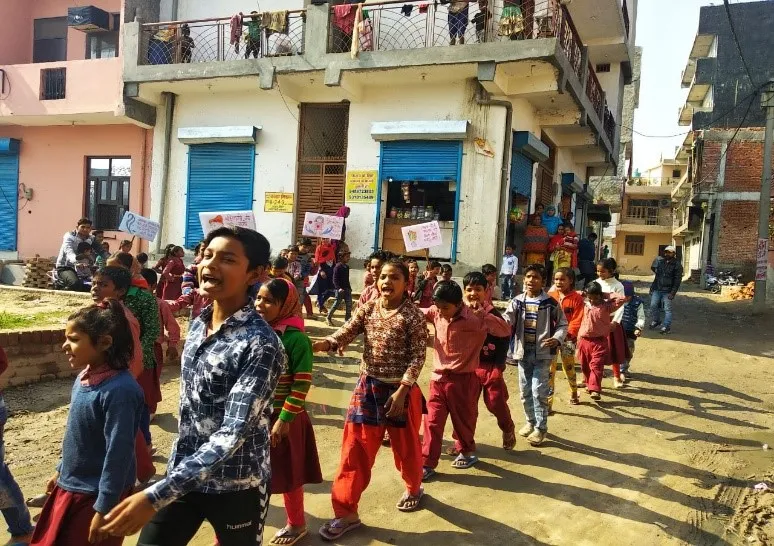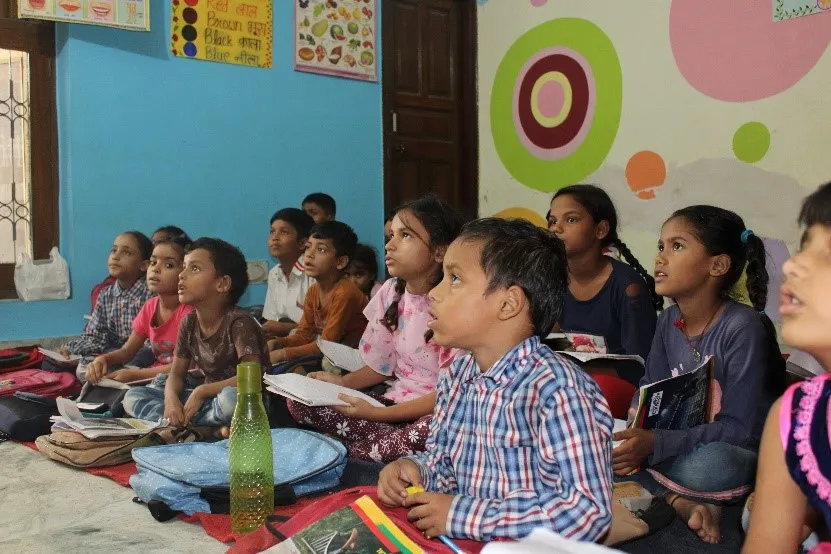Sakshi’s Education Project is a community-driven initiative dedicated to ensuring access to quality education for migrant children in underserved areas. The project is currently active across Haryana, Delhi, and Uttar Pradesh.
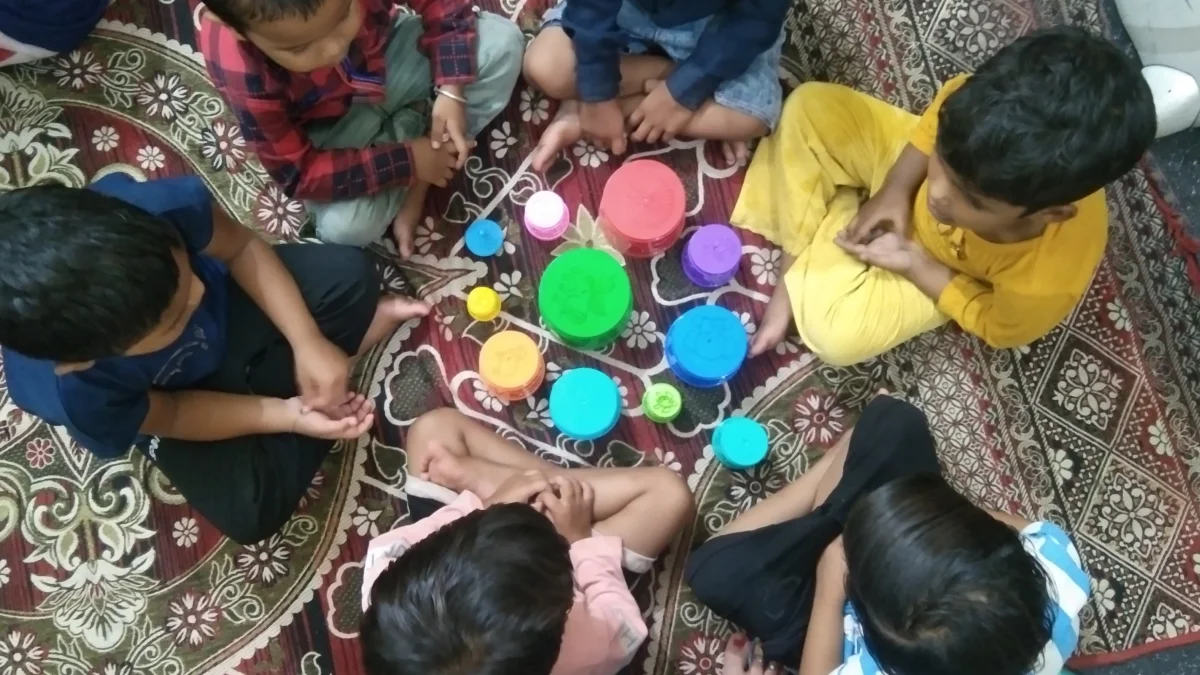
To bridge the educational gap for children from migrant communities by:
- Identifying out-of-school children through door-to-door surveys
- Enrolling them in Sakshi’s structured learning programmes
- Preparing them for mainstream integration into government schools
Where We Work
- States Covered: Haryana, Delhi, Uttar Pradesh
- Centres Operational: 12 Education Centres
- Total Children Reached: Over 5,000 children aged 6 to 14 years
Program Components
We provide age-appropriate, level-based learning through three targeted programmes:
- NFE (Non-Formal Education): For out-of-school children who need foundational learning
- ECE (Early Childhood Education): Focused on early learners, using play-way methods
- REC (Remedial Education Classes): Academic support for mainstreamed children, offered free of cost
Teaching Approach
- Uses Sakshi’s in-house curriculum, tailored to students’ learning levels
- Conducts baseline, midline, and endline assessments to monitor progress
- Classrooms are child-friendly, inclusive, and interactive, encouraging joyful learning
- Focus on foundational literacy and numeracy, critical thinking, and personal development
Sustainable Impact
- After one year of focused learning, children are enrolled in nearby government schools
- For continued academic support, REC tuition classes help mainstreamed children stay aligned with school requirements
- Schools and parents report noticeable improvements in confidence, discipline, and learning outcomes
Sakshi’s Education Project is not just about literacy—it’s about building confident learners and responsible citizens from vulnerable communities. By creating a nurturing environment, we help children catch up, stay in school, and build a brighter future.
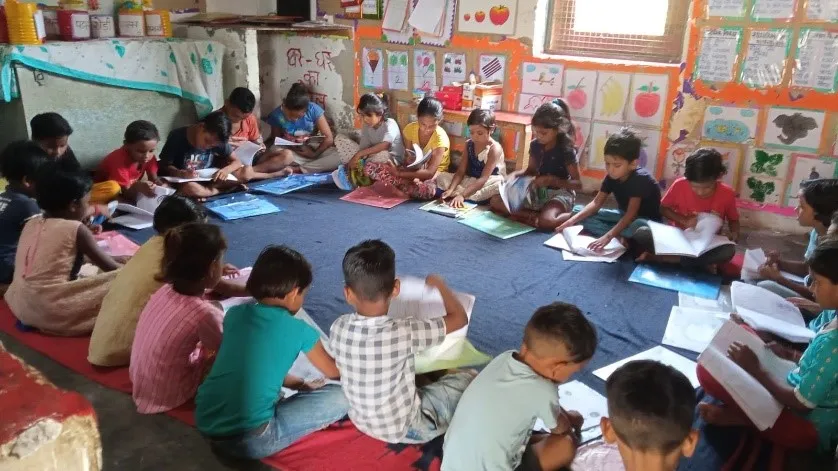
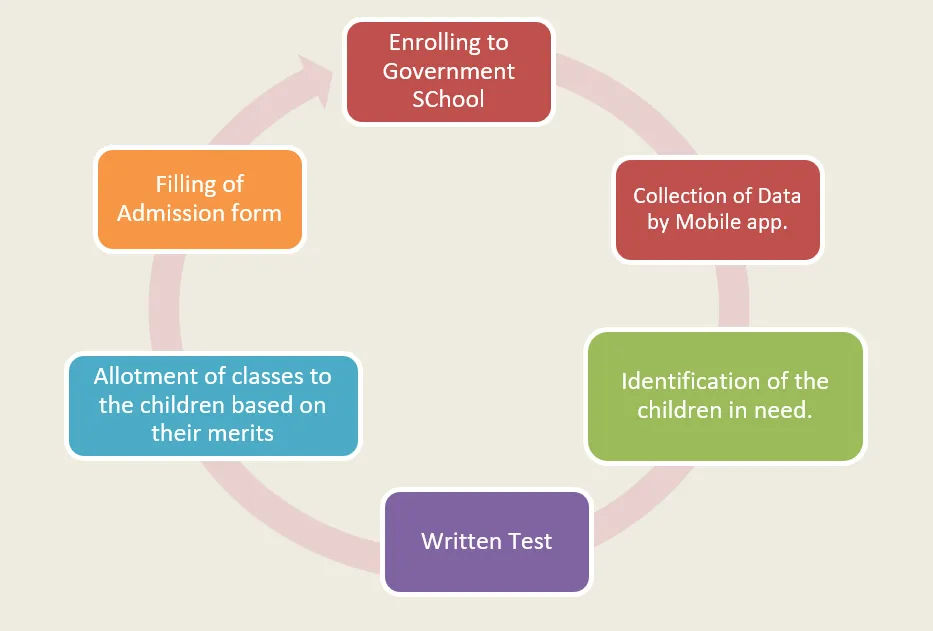
Non-Formal Education Support
Free and compulsory elementary education is a constitutional assurance and is a fundamental right to children in India. Despite continuous efforts there is a significant number of children who have either never been or have dropped out of school, especially the children from slum migrant families remain outside the periphery of quality education. Thus, non formal education plays a very vital role in the rural & slum areas to provide education for underprivileged Children. It has proven to be a viable alternative to formal primary education for 5-14 year age group of children who cannot afford formal.
Primary Right to Education Act (RTE Act) use a reference period of 45 working days at any time after the beginning of a school year to identify out-of-school children. If a child does not attend school even for a day in this reference period they are identified as out-of-school children or dropped out. Based on the above understanding Sakshi is addressing this issue of school drop-out children and is approaching the issue of OoSC comprehensively guided by an inclusive paradigm.
The proposed model is moving away from the conventional bridge model and working towards creating a resilience model for the betterment and improvement of the children.
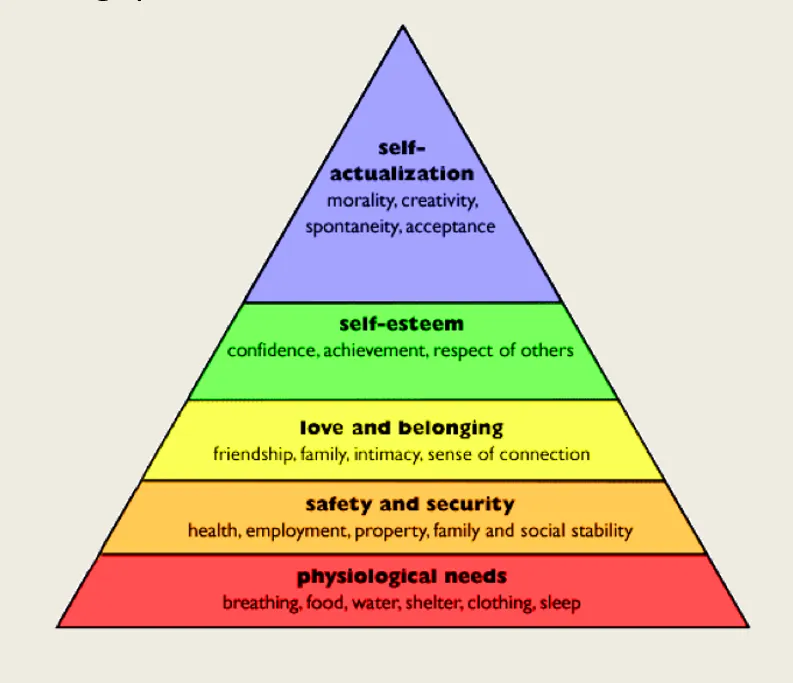
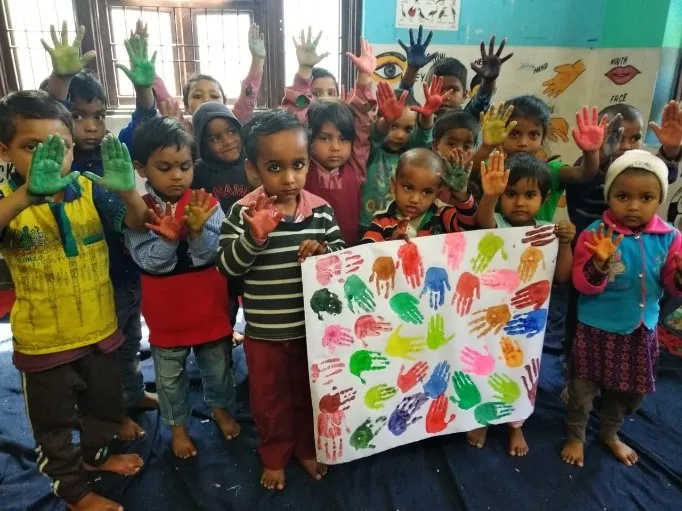
Early Childhood Education Support
Traditionally the early childhood years were considered to lay the foundation for inculcation of basic values and social skills in children. In India much of the early care and education of the child is informal, within the family and largely through the grandmothers’ caring practices, stories, lullabies, and traditional infant games, handed down from one generation to the next. At Early Childhood, one develops the cognitive, physical, social, and emotional skills, which lay the foundation for holistic development. These learnings are largely determined by supportive family structure and community care practices.
But with the families coming from difficult socio-economic realities, it is found that the burden of Child Care is shifted on to the hands of the elder siblings of the family. This burden eventually keeps them away from the educational structure. With growing urbanization, the need and increase in maternal employment has devoid children from accessing informal child care as it is essentially believed to be the responsibility of a woman.
This challenge paved way for organized Pre- School Education/ Early Childhood Care and Education (ECCE). Recognizing the significance of informal child care, Sakshi imparted ECCE for disadvantaged families. The curriculum is designed as activity based. The activities spanning for four hours in a day focuses on the overall development indicators necessary for a child’s growth i.e. cognitive, physical development, language etc.
These ECCE centers in regions of Delhi and Gurgaon ensure a safe and healthy environment where the children can grow their knowledge, develop necessary skills of thinking, imagination, and writing. This also prepares them to become part of the mainstream school structure upon enrolment after turning 6 years old.
